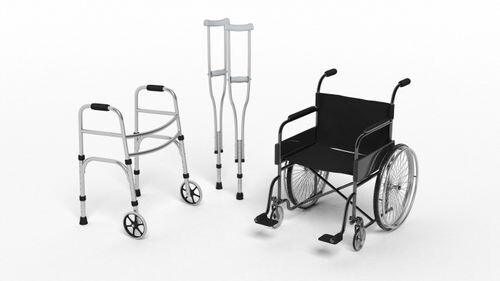Medication, Medical Equipment & Supplies
 Hospice care aims to provide comprehensive support and comfort to patients facing life-limiting illnesses. One of the key aspects of hospice care is the provision of medication, medical equipment, and supplies to effectively manage symptoms and enhance patients’ quality of life during their end-of-life journey. This article delves into the various aspects of medication and medical supply management in hospice care and the importance of these services for patients and their families.
Hospice care aims to provide comprehensive support and comfort to patients facing life-limiting illnesses. One of the key aspects of hospice care is the provision of medication, medical equipment, and supplies to effectively manage symptoms and enhance patients’ quality of life during their end-of-life journey. This article delves into the various aspects of medication and medical supply management in hospice care and the importance of these services for patients and their families.
Medication Management in Hospice Care
Effective medication management is crucial for alleviating symptoms, controlling pain, and ensuring patients’ comfort during their end-of-life journey. Hospices collaborate with healthcare professionals to develop individualized medication plans tailored to each patient’s unique needs and medical conditions.
Pain and Symptom Control
Hospice care teams work diligently to manage patients’ pain and other symptoms, such as nausea, shortness of breath, or anxiety. They carefully assess each patient’s needs and adjust medications accordingly to provide optimal comfort and relief.
Patient and Family Education
Educating patients and their families about the appropriate use of medications is an essential aspect of hospice care. Hospice staff provide guidance on medication administration, potential side effects, and any necessary precautions to ensure patients receive the most effective and safe treatment.
Medical Equipment and Supplies
Hospice care includes providing necessary medical equipment and supplies to assist patients in managing their symptoms and maintaining their independence, safety, and comfort.
Mobility and Assistive Devices
Hospices provide mobility aids, such as walkers, wheelchairs, and canes, to help patients maintain their independence and prevent falls or injuries. In addition, they may supply assistive devices like hospital beds, lift chairs, or bedside commodes to enhance patients’ comfort and safety at home or in a hospice facility.
Respiratory and Oxygen Equipment
For patients with respiratory issues, hospices provide equipment such as oxygen concentrators, nebulizers, or continuous positive airway pressure (CPAP) machines to help manage symptoms and improve breathing.
Wound Care Supplies
Hospice care teams manage patients’ wounds and skin conditions by providing necessary wound care supplies like dressings, bandages, and creams. They also offer guidance on proper wound care techniques to prevent infection and promote healing.
Incontinence Supplies
To maintain patients’ dignity and comfort, hospices provide incontinence supplies such as absorbent pads, briefs, and bed protectors. They also educate caregivers on proper hygiene practices to minimize the risk of skin irritation or infection.
Collaboration with Healthcare Professionals
Hospice care teams work closely with various healthcare professionals, such as physicians, nurses, and pharmacists, to ensure appropriate medication management and medical equipment provisions. This collaborative approach ensures that patients receive the highest quality of care and support during their end-of-life journey.
Medications, medical equipment, and supplies play a critical role in hospice care for patients with terminal illnesses. By providing these essential services, hospices help patients and their families manage symptoms, maintain comfort, and ensure dignity during the end-of-life journey.
Recent Blog Posts
Volunteers: The Unsung Heroes of Hospice Care
While healthcare professionals play a critical role in hospice care, volunteers are the unsung heroes who provide a wide range of essential services to patients and their families.
Vital Role of Social Workers in Hospice
Social workers can provide critical support and resources to make the process more manageable. Understanding the role of social workers can help you or your loved one make the most of the available services and resources.
Key Pillars of Bereavement Support for Families and Caregivers
Seek bereavement support to cope with the loss of a loved one. Key pillars of support include grief counseling, support groups, memorial services, and education/resources. Remember to be patient and kind to yourself.



